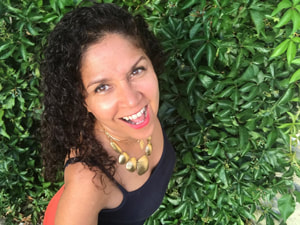|
No one gets very far in academia without mentors. This is partly because mentoring is built into the structure of academic life.
If you are very lucky, sometimes you can get the perfect mentor assigned to you. Or maybe you just happen to meet someone who would be a perfect mentor for you. But why leave this important part of your career development to chance? Be more intentional about finding your perfect mentor. To help you, here are some of the characteristics to help you find the perfect match. Currently, I am looking for a mentor to help me improve my public speaking. Here are some of the criteria for my ideal mentor:
This is the third in a series of blog posts about mentors. To download a Free Checklist Meeting with A New Mentor, click HERE. Dr. Luz Claudio is a Tenured Professor of Environmental Medicine and Public Health and the author of How to Write and Publish a Scientific Paper: The Step-by-Step Guide and the Spanish edition: Cómo Escribir y Publicar un Artículo Científico: La Guía Paso a Paso. She has also created the Notebook for Seminars and Lectures. In the books, she teaches young scientists how to publish their research and take effective notes. She also translates environmental health research into information that everyone can understand by publishing fact sheets on her website: DrLuzClaudio.com. The opinions expressed in this blog are solely her own and may not reflect those of her employer, colleagues or associates.
0 Comments
"Won’t you be my mentor?".
Awkward! Asking that question can be as awkward, and scary as asking "will you marry me?" Approaching someone to be your mentor can be a very intimidating proposition. After all, this potential mentor is someone you admire, otherwise, you would not be approaching them. They are an expert. A master of their domain. And here you are, asking them to take time out of their busy schedule to mentor you. How do you even do that?! I have been a mentor to hundreds of students and emerging scientists. I have also been a mentee, and currently, have two mentors whom I meet with regularly. One mentor helps me with career issues within my department and the other advises me on issues outside of academia. I am now in the process of finding a third mentor to help me with expanding my business life outside of academia, especially regarding public speaking. So I understand how you might feel when you first approach a potential mentor. Here are some tips to help you approach a mentor with confidence:
So be specific when you approach a potential mentor. Be clear about what you want to learn from them and why. And be open to listening for unexpected advice. Clarity, preparation, and open-mindedness will help you when you approach a new mentor and will take the awkward out of what can be a very uncomfortable first step. This is the second in a series of blog posts about mentors. To download a free checklist about the things to discuss on your First Meeting with A New Mentor, click HERE. |
This section will not be visible in live published website. Below are your current settings: Current Number Of Columns are = 1 Expand Posts Area = 1 Gap/Space Between Posts = 8px Blog Post Style = card Use of custom card colors instead of default colors = 1 Blog Post Card Background Color = current color Blog Post Card Shadow Color = current color Blog Post Card Border Color = current color Publish the website and visit your blog page to see the results AuthorDr. Luz Claudio is an environmental health scientist, mother and consultant, originally from Puerto Rico. She is a tenured professor of environmental medicine and public health. Luz recently published her first book: How to Write and Publish a Scientific Paper: The Step-by-Step Guide. Dr. Claudio has internship programs and resources for young scientists. Opinions expressed in this blog are solely her own and may not reflect her employer's views. Categories
All
|
|
Dr. Luz Claudio
[email protected] |
|
Opinions expressed in this website are solely Dr. Luz Claudio's own and may not reflect her employer's views. None of the information on this website should be taken as medical advice.
© COPYRIGHT 2018. ALL RIGHTS RESERVED.




 RSS Feed
RSS Feed